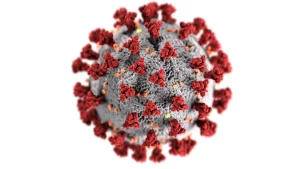COVID-19 – what are the latest government recommendations?

Since the World Health Organisation (WHO) stepped down the COVID 19 pandemic in March 2023, public health officials have responded by easing restrictions placed across the country. Whilst schools and workplaces have reopened, the presence of circulating COVID-19 in the community means that ongoing advice to reduce transmission remains in place.
Find below the latest global epidemiological data:
https://coronavirus.jhu.edu/map.html
Over the course of the pandemic there have been several variants of COVID-19 with Omicron and its sublineages being the most common circulating viruses at the time of writing. Whilst some people may remain asymptomatic, studies suggest that even in the absence of symptoms, it remains highly infectious.
What can we do to minimise risk of transmission and keep ourselves safe?
1. Vaccinations
It is highly recommended that most people in the UK should have at least a primary vaccination course of a UK approved vaccine with two doses of vaccine at least 8 week apart. As the virus is constantly mutating, Moderna and Pfizer have developed second generation bivalent vaccines which targets both old and new variants of COVID-19.
These vaccines are expected to be available as boosters for at risk individuals as part of the ongoing seasonal campaigns. For example the Spring 2023 vaccination campaign recommends booster vaccinations for adults aged over 75, residents of nursing homes, individuals ages 5 years and over who are immunosuppressed.
How do I get a vaccine?
- Walk-in COVID-19 vaccination sites and online bookings are currently unavailable
- GP surgery
- Care homes
- Occupational health team in some workplaces.
2. Allow fresh air to circulate
Transmission is most frequent amongst household contacts and in settings where people are living or working in proximity such as detention centres, homeless shelters and nursing homes. To mitigate this risk, it is recommended that indoor areas are adequately ventilated with open windows and doors to allow fresh air to circulate.
Additionally, fans can be placed in front of windows and in some instances, portable high-efficiency particulate air (HEPA) filtration systems can be used.
3. Practice good hygiene
It is recommended to wash your hands regularly with soap and warm water for 20 seconds. This not only removes visible dirt but is a good way to remove bacteria and viruses which can enter and infect the body when in contact with surfaces like the nose, eyes or mouth.
An example of a good hand washing technique can be found at the following link:
https://www.nhs.uk/live-well/best-way-to-wash-your-hands/
Hand sanitiser containing at least 60% alcohol is a good alternative to hand washing if the hands are not visibly dirty.
You should cough or sneeze into a disposable tissue or into the crook of the arm to prevent viral particles becoming airborne. Used tissues should be placed in the nearest bin and hands should be promptly washed or cleaned with hand sanitiser.
4. Face coverings
As COVID-19 is an airborne disease, a key component of the public health response has been to minimise transmission of the virus through respiratory droplets. Droplets that are invisible to the naked eye can be spread when coughing, sneezing as well as talking, singing and laughing.
Current guidelines recommend the use of face masks when coming into contact with high-risk individuals or when you are likely to be in a crowded poorly-ventilated area. Whilst there is best evidence for reduced transmission with medical grade masks such as N95 masks, due to limited supply, these are prioritised for those in high-risk settings such as the intensive care units in hospitals. Surgical masks are most effective when tied around the head rather than with ear straps.
Reusable masks should have at least two, if not 3 layers and have a good fit around the nose and mouth. Scarves, bandanas and religious head wear are not as effective. Masks should be washed regularly and dried completely prior to use.
Last edited 14/7/23

